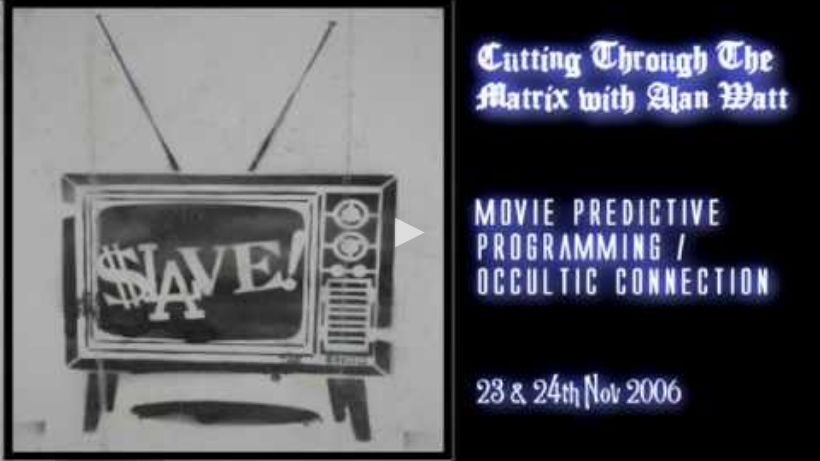Culture Creation for Control
Monkey see, monkey do.
Alan Watt, a Canadian researcher and author, has explored various topics related to culture, society, and the influence of media and entertainment on human behavior. In his work, he has discussed the concept of “culture creation for control,” which suggests that powerful entities, such as governments, corporations, and media conglomerates, use mass media, entertainment, and popular culture to shape public opinion, manipulate perceptions, and control behavior.
Watt’s perspective aligns with the notion of predictive programming, which proposes that elements of popular culture, including movies, television shows, and music, contain hidden messages, symbols, and themes that prepare and condition the public for future events or social changes. According to this view, certain works of fiction and entertainment serve as a form of psychological conditioning, subtly influencing individuals’ beliefs, attitudes, and behaviors.
Watt has also explored the occultic connections and symbolism embedded within popular culture and media. He suggests that occult symbols and motifs are often present in mainstream entertainment, serving as markers of esoteric knowledge and hidden agendas. These symbols may be interpreted as signals of the influence of secret societies, elite groups, or shadowy cabals operating behind the scenes to exert control over society.
While Watt’s views have gained a following among some conspiracy theorists and alternative researchers, they have also faced criticism and skepticism from mainstream scholars and media analysts. Critics argue that the concept of culture creation for control and predictive programming relies on speculative interpretations and lacks empirical evidence to support its claims.
Overall, Watt’s exploration of culture creation, predictive programming, and occultic connections in popular culture offers a provocative perspective on the dynamics of media influence and societal control. Whether one agrees or disagrees with his views, they underscore the importance of critical thinking and media literacy in navigating the complex landscape of contemporary culture and mass media.

The concept of “culture creation for control,” as discussed by Alan Watt, involves the idea that elements of popular culture, such as movies, music, and media, are intentionally crafted and disseminated by powerful entities to influence and manipulate societal beliefs, attitudes, and behaviors. This concept often intersects with discussions of predictive programming and occultic connections, suggesting that hidden agendas and symbolism are embedded within cultural products to shape public consciousness and advance specific agendas.
Alan Watt, a researcher and commentator on topics related to geopolitics, globalization, and social engineering, has explored these themes in his work, proposing that certain individuals or groups use culture as a tool for exerting control and influence over the masses. He suggests that through the manipulation of symbols, narratives, and imagery, these entities can subtly shape public perception and behavior, steering society in desired directions.
Predictive programming refers to the theory that elements of popular culture, such as movies, television shows, and literature, contain hidden messages or clues about future events or societal trends. Proponents of this theory argue that by exposing audiences to these ideas in a fictional context, individuals can be psychologically conditioned to accept or anticipate similar events in real life.
Occultic connections refer to the alleged presence of occult symbolism, rituals, and themes within popular culture, suggesting a deeper, esoteric meaning behind certain cultural artifacts. Some theorists believe that these occult influences serve as markers of secret societies or elite groups, subtly exerting their influence over society through encoded messages and imagery.
While these ideas have gained traction within certain circles of conspiracy theory and alternative media, they are often met with skepticism from mainstream sources. Critics argue that attributing hidden agendas and occult symbolism to popular culture can oversimplify complex social dynamics and ignore more plausible explanations for cultural trends and phenomena.
Ultimately, discussions of culture creation for control, predictive programming, and occultic connections raise important questions about the influence of media and popular culture on society, encouraging critical analysis and examination of the messages and ideologies embedded within cultural products. However, it’s essential to approach these topics with a discerning eye and consider multiple perspectives before drawing conclusions.